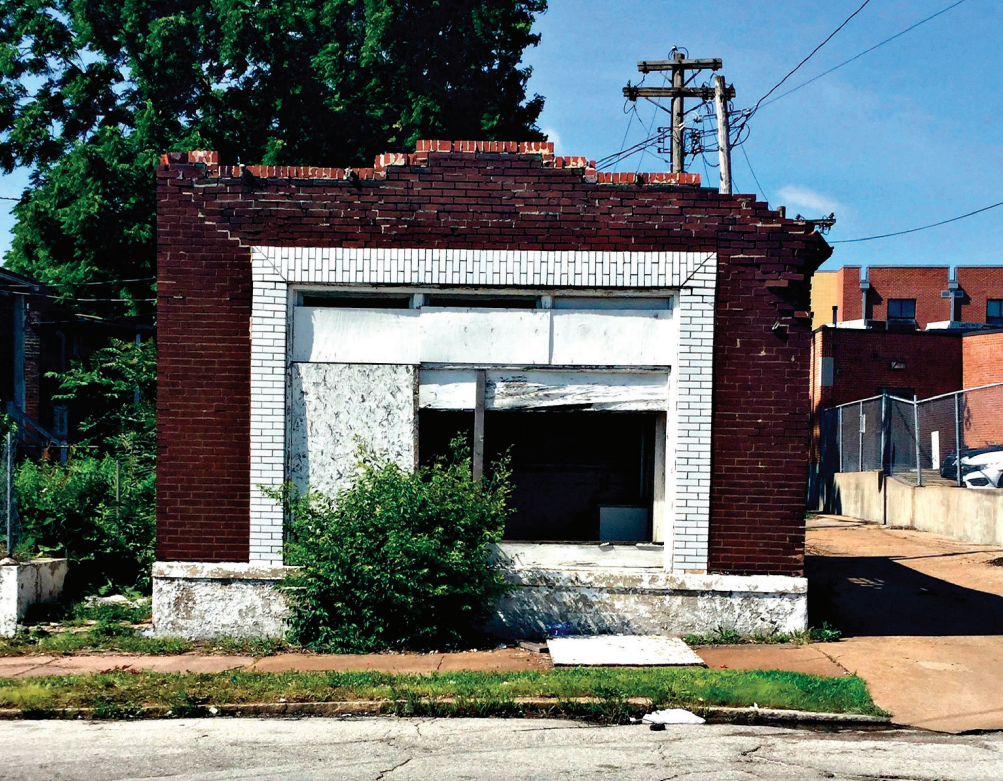Research Focus
Artificial intelligence is driving an unprecedented boom in data centers—massive facilities that consume large amounts of electricity and water while releasing waste heat into surrounding neighborhoods. These data centers are often built in the same low-income communities and communities of color that are already struggling with abandoned properties and dangerous heat waves.
The IEC’s 2019 report “Environmental Racism in St. Louis” revealed that 90% of vacant properties in St. Louis are concentrated in Black neighborhoods, creating cascading harms: illegal dumping, reduced tree cover, and intensified heat islands. Research shows formerly redlined areas are now 2.6°C warmer than other neighborhoods in the same city. As data centers seek low-cost land, these already overburdened communities may face a new threat—industrial-scale heat generation and energy demands layered onto existing environmental burdens, with uncertain economic upside.
This research project investigates a critical question: how will the proliferation of data centers exacerbate existing environmental injustices in neighborhoods already experiencing high vacancy and extreme heat?
Building on the IEC’s work documenting environmental racism in St. Louis, you will investigate how data centers intersect with vacancy and heat vulnerability. You’ll assess cumulative environmental impacts, analyze legal frameworks (or the lack thereof) protecting overburdened communities, and develop policy recommendations the IEC can use for advocacy. While this work will be focused on the St. Louis community, we anticipate this research will have valuable insights for other cities facing similar concerns.
Skills, Techniques, Methods
- Spatial analysis (e.g., GIS)
- Data analysis and visualization (e.g., Excel)
- Environmental law
- Secondary research (e.g., peer-reviewed scientific literature and policy)
- Writing for multiple audiences
- Independent research and collaboration
- Professionalism
Research Conditions
The IEC is a pro bono legal clinic located in Anheuser-Busch Hall. Students will typically conduct independent research using online tools; while the clinic has desktop computers in a shared student space, it is highly recommended that students have access to their own devices (e.g., personal laptop). The work will largely comprise quantitative and qualitative research methods and preparing written deliverables (e.g., progress reports, slide decks, data visualization, etc.). Given the nature of the work, students will not have to be on-site at all times, aside from required individual and team meetings in AB Hall.
Team Structure and Opportunities
The IEC includes two attorneys – Elizabeth Hubertz, IEC Director and Professor of Practice, and Laura Robb, Supervising Attorney and Lecturer – along with two scientists – Peter Goode, Environmental Engineer, and Eric Conners, Engineering and Science Postdoctoral Fellow. Students will be directly supervised by Eric Conners and Elizabeth Hubertz, though they should expect ample opportunities to collaborate with all IEC faculty. The student should expect to primarily work independently, with regular check-ins via weekly individual meetings and at least two team meetings where they will present their research to the IEC team.
Requirements
Preferred, though there is opportunity to learn:
– Experience using Geographic Information Systems (GIS) software
– Experience reading and interpreting local, state, and federal policy (e.g., environmental law, zoning ordinances, etc.)
Required:
– Strong written and verbal communication skills
– Ability to work independently and as part of a team
– Microsoft office (e.g., Word, Excel, PowerPoint)
– Basic understanding of research methods and data analysis

Elizabeth Hubertz
ejhubertz@wustl.edu
